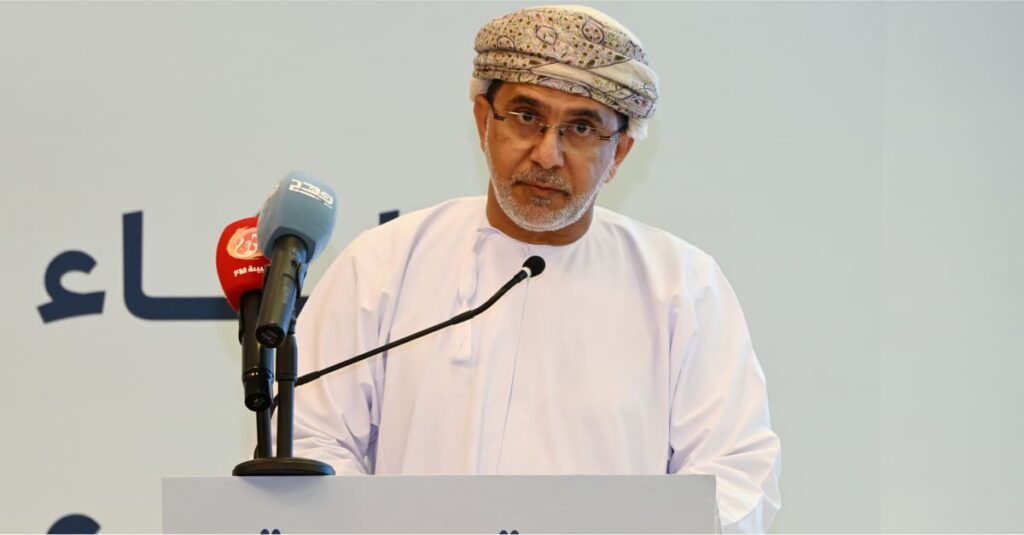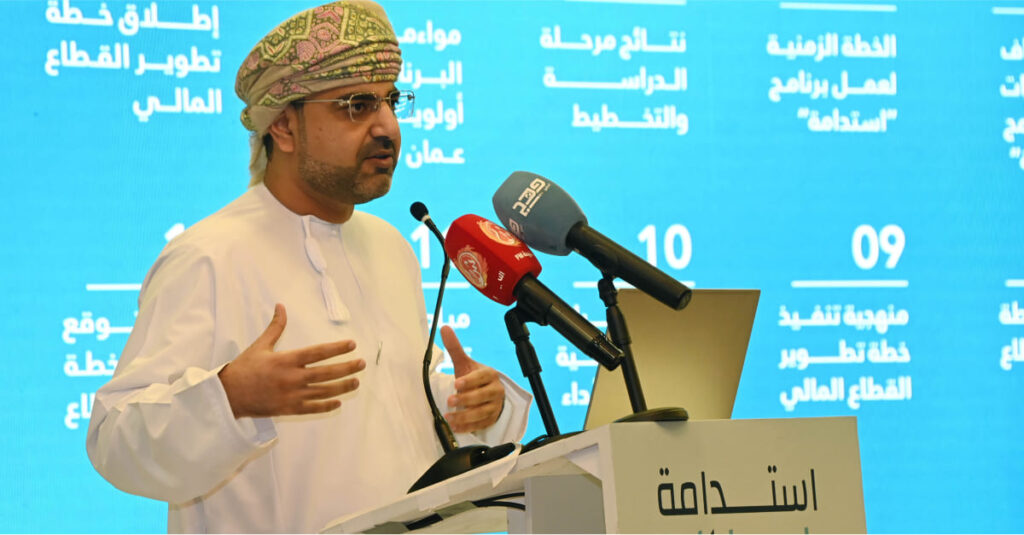
MUSCAT – The National Program for Fiscal Sustainability Financial Sector Development, “Estidamah” today announced the financial sector development plan covering both the banking and capital market sectors. The plan consists of more than 74 initiatives with executable plans based on six core themes, supported by four enablers, in addition to 10 strategic program metrics.
The plan aims to effectively allocate financial resources and enhance their role in achieving the developmental, economic, and ambitious investment goals of Oman Vision 2040.
Additionally, the plan seeks to improve opportunities for obtaining financing. The National Program “Estidamah” will collaborate with its stakeholders to implement these initiatives within the framework of the Tenth Five-Year Plan, with a focus on improving the state’s public financial situation and sustaining its impact.

Nasser Khamis Al Jashmi, Secretary-General of the Ministry of Finance and the General Supervisor of the National Program “Estidamah,” stated, “The announcement of the financial sector development plan is a continuation of the government’s efforts, given the positive results achieved through the implementation of the medium-term financial plan (2020-2024), which led to a decrease in the average breakeven oil price in the state’s general budget and a reduction in public debt, accompanied by a credit rating increase.”
He emphasized that the government continues to improve financial conditions and develop the financial sector, with the National Program for Fiscal Sustainability and Financial Sector Development “Estidamah” being approved for a three-year period starting from 2023, to be a key player in achieving the targets of Oman Vision 2040.
Al Jashmi added, “The financial sustainability phase will effectively direct financial resources towards economically viable projects to promote economic development. The program will collaborate with both public and private sector entities to create an advanced and vibrant financial sector contributing to the GDP.”

Mahmood Abdallah Al Aweini, Director of the National Program for Fiscal Sustainability and Financial Sector Development, highlighted several objectives of the program. These include improving general financial indicators for the state, developing the financial sector system to empower individuals and institutions in various development paths, moreover enhancing the participation of the private financial sector to provide targeted financing options for various groups, such as small and medium enterprises (SMEs), entrepreneurs, investors, start-ups, and economic diversification sectors.
The program’s working themes included providing financing options for SMEs, directing funding to targeted sectors, developing a sustainable green finance system, activating the role of the capital market, enhancing attractiveness for foreign investments, and activating the insurance sector. The program also focused on four enablers: fintech, Legal & Regulatory Landscape, financial literacy, and Human Capital Development.
During the study phase, the program identified challenges such as limited financial services and products suitable for different groups, concentration of financing opportunities in traditional sectors, low liquidity levels in the capital market, and the absence of opportunities related to fintech and sustainable green finance. Furthermore, there were limited qualified human resources in the financial sector.
Based on a detailed study conducted by the program’s team, several quick-win initiatives were implemented in 2023 to address tangible challenges. Clear and applicable performance goals and indicators were set to monitor improvements and corrective initiatives were proposed capitalizing on the best global practices.
The Financial Sector Development Plan is a significant step towards Oman’s financial future, where efforts will converge with various stakeholders to achieve the national goals of Vision Oman 2040.
In recent times, “Estidamah” program has completed several initiatives in collaboration with relevant stakeholders including Market Maker and Liquidity Providers Initiative, Green/Sustainable Financing Initiatives and Insolvency Law Initiative.

0 Comments